It is my pleasure to introduce the 2019 Opensource.com summer reading list. This year's collection includes 13 great books recommended by members of the Opensource.com community.
You will find suggestions suited for a wide variety of tastes in this diverse and interesting selection of books. If you enjoy fiction, we have a great thriller and a cozy mystery on our list. If your reading interests favor nonfiction, we have several great options there as well. If you prefer books that help you tinker and learn new programming skills, there are six programming books, all recommend by Opensource.com Community Moderator Don Watkins, that will help you learn Python or tinker with the Adafruit Circuit Playground Express.
If you cannot find anything that interests you on this year's list, check out our previous lists for more reading suggestions:
- 2010 Opensource.com summer reading list
- 2011 Opensource.com summer reading list
- 2012 Opensource.com summer reading list
- 2013 Opensource.com summer reading list
- 2014 Opensource.com summer reading list
- 2015 Opensource.com summer reading list
- 2016 Opensource.com summer reading list
- 2018 Open Organization summer reading list
Automate the Boring Stuff with Python
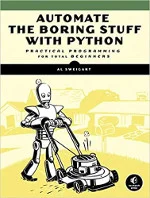
by Al Sweigart (recommendation written by Don Watkins)
This is a great starter book for anyone who wants to learn Python. Whether you are young or old, you will soon find yourself writing your own Python code using this wonderful book, which includes a companion website of the same name. The author takes you through the basics of the Python language in a logical manner with one concept building upon another. Begin with the basics, and progress to lists, dictionaries, and strings. Learn how to read and write files with the os module. Learn the basics of web scraping with the Beautiful Soup module.
The Blockchain Revolution
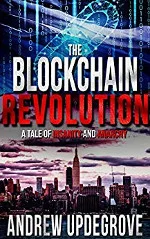
by Andrew Updegrove (recommendation written by Andrew Updegrove)
My fifth thriller, The Blockchain Revolution, is not only based on blockchain technology, but many of the main characters are open source developers. It's written so it will not only be a fun read for open source professionals but an easy way for non-IT types to understand how open source projects and communities operate and how they fit into the wider world. It's available in e-book and print form.
Here are two endorsements:
"Andrew Updegrove's Frank Adversego thrillers are realistic page-turners, making it clear that if you're not worried about cybersecurity, you're not paying attention." —Bruce Schneier, privacy and security expert
"Andrew Updegrove brings a rare combination of drama, satire, and technical accuracy to his writing. The result is a book you can't put down that tells you things you might wish you didn't know." —Admiral James G. Stavridis, retired Commander, U.S. European Command and NATO Supreme Allied Commander Europe, and dean of the Fletcher School of Law and Diplomacy
Getting Started with Adafruit Circuit Playground Express
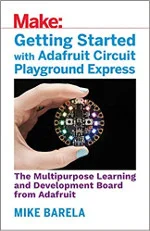
by Mike Barela (recommendation written by Don Watkins)
This is a great book for makers or anyone who does not want to waste any time when they're learning or teaching others how to get the most out of their new Circuit Playground Express. The author provides a great overview and description of the device and includes code examples and links to websites that provide more information. Whether you plan to use Python or Microsoft's MakeCode to control your Circuit Playground Express, this book is a must-read for summer.
git commit murder
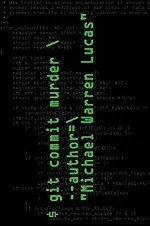
by Michael Warren Lucas (recommendation written by Joshua Allen Holm)
Michael Warren Lucas's git commit murder is an excellent, cozy mystery for technologists. Like many cozy mysteries, it tightly weaves the protagonist's vocation or hobby into its murder-mystery narrative. In this case, the character's vocation is a contributor to a fictionalized version of the BSD community. The project names are made up, the people are fictional characters, but the basic social interactions about technologists attending a technical conference are spot-on.
The story begins with the main character, Dale Whitehead, arriving in Canada to speak at BSD North, a fictional BSD conference held at the also fictional Bywater University. Even the parts of the narrative that occur before the murder are interesting and feature the kinds of social interactions that are typical at a tech conference, like the endless debates over the merits of one technology over another. Lucas, who writes non-fiction technical books as Michael W. Lucas, knows his stuff. The pre-murder parts of the narrative were so familiar that Lucas could have been writing about a conference that I have attended.
I will not spoil the murder mystery, but I will say that I enjoyed that aspect of the book a lot. Lucas blends the cozy mystery formula with open source development in a way that displays an excellent understanding of both. If you like murder mysteries and you like open source, you should give this book a try.
Learn to Program with Minecraft
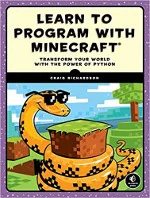
by Craig Richardson (recommendation written by Don Watkins)
In this book, the author teaches you how to write Python code to control what happens in your Minecraft world. This is a great segue into Python programming using the popular Minecraft program. By integrating Minecraft with your knowledge of Python, you will be able to unlock the creativity of the Minecraft environment. All the code and resources for the book can be found at the publisher NoStarch Press.
Making Games with Python & Pygame
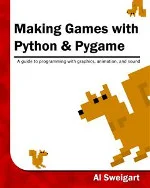
by Al Sweigart (recommendation written by Don Watkins)
The book covers the Pygame module and includes the code for 11 games. You can purchase the book on Amazon or download it in PDF on the web. Either way, you will soon be learning to create Python-based games. The author provides the source code and other necessary files used in the book. This is a great resource for teachers and students eager to learn the Pygame module.
Al Sweigart has a number of other books available online or in print, including Coding with Minecraft, Cracking Codes with Python, Invent Your Own Computer Games with Python, and Scratch Programming Playground.
Nine Lies About Work
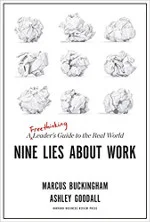
by Marcus Buckingham and Ashley Goodall (recommendation written by Jeff Mackanic)
The first thing that struck me about this book was the authors. Marcus Buckingham is a well-known global thought leader focused on unlocking people's strengths. I have read and been inspired by many of his books. Surprising to me was the co-author, Ashley Goodall, who is the SVP of leadership and team intelligence at Cicso. This seemed like a good combo, a researcher and a practitioner teaming up, and together they have written a very inspiring book.
In open source, teams are critical. This book is full of practical advice for how to make your team function better and have more fun at work. Whether you are a team lead or a team member, this book is full of great insights.
A few highlights:
- Truth 1: People care which team they are on. The team is a much bigger influence than the company. We talk a lot about company culture; we rarely talk about team culture.
- Truth 4: The best people are spiky. The superstars are not good at everything, but they are great at a few things—let them do what they are great at. Uniqueness is a feature, not a bug.
- Truth 5: People need attention. Because we all want to be seen for who we are at our best.
Open Up, Education! How Open Way Learning Can Transform Schools
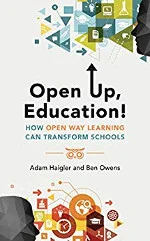
by Adam Haigler and Ben Owens (recommendation written by Bryan Behrenshausen)
Writers covering "open education" can take a myopic view of open source principles' potential to impact 21st century teaching and learning (for instance, focusing narrowly on the benefits of open-licensed educational resources or on the power of crowdsourced curricula). That's not so in this powerful little treatise. Authors Adam Haigler and Ben Owens offer a panoramic vision for entire educational institutions reimagined as open organizations—places where student learning is participatory and engaged, where teacher learning is collaborative and peer-driven, and where school governance structures are flexible and meritocratic. Don't call it "open source education"; call it (as the authors do) "Open Way Learning."
Haigler and Owens aren't another pair of pundits with well-intentioned but misguided ideas about the ways some sensational industry trend can rescue and rehabilitate global education. They're practitioners themselves—teachers from the trenches who've experimented their way to a pragmatic set of best practices (their firsthand accounts of work with students will move you). They explain how Open Way Learning dovetails with (and supercharges) pedagogical trends already making waves in the US and across the world, like project-based learning, peer tutoring, authentic assessment, and competency-based education. If you're a teacher recharging on summer hiatus, this book should be the first on your to-read stack.
Python for Kids
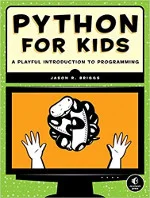
by Jason Briggs (recommendation written by Don Watkins)
Python for Kids is a great place for anyone looking for an introductory book on Python. I have used it as a basis for teaching elementary-aged students. The author teaches you how to download and install Python; learn the basics of Python programming with lists, tuples, strings and maps; and explore Python-powered graphics with the Turtle module. The book includes a link to sample files that the reader can use to illustrate the topics covered in the book, including recycling code with functions and modules or using Tkinter for better graphics and creating your first game with it.
Relentless: Changing Lives by Disrupting the Educational Norm

by Hamish Brewer (recommendation written by Don Watkins)
Hamish Brewer is anything but typical. A tattooed, skateboard-riding principal whose zest for life and education transcends tradition, culture, place and every other impediment you could imagine. He grew up in New Zealand in poverty. He found school difficult and oppressive and was retained for a year. However, from an early age, he had a drive to distinguish himself and do something great. He believes that success in education is about relationships. He writes, "When you acknowledge, respect, empower, motivate, inspire, and believe in people, you can move mountains."
This book will have you on the edge of your seat and you will be hard-pressed to put it down. Hamish loves his school and the children that attend it. He builds a culture of confidence and desire by telling children that he loves them. He challenges educators to introduce the word love into the everyday vocabulary in their schools. Relentless is a call for everyone to aspire to new heights. We all have it in us to be relentless, and this book is an invitation to do that.
(Don published a version of this review on his blog.)
Teach Your Kids to Code
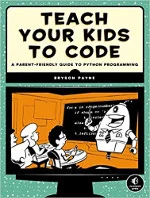
by Bryson Payne (recommendation written by Don Watkins)
This is a great book for anyone who wants to learn to code with Python or is looking for a great introductory text for elementary-age children and up. By using the Python Turtle module, Dr. Payne will soon have you writing your own Python code and exploring the power of the language using variables, lists, for loops and more. You can download all the code examples, too.
WTF? What's the Future and Why It's Up to Us
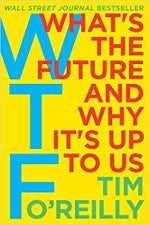
by Tim O'Reilly (recommendation written by Jason Hibbets)
Tim O'Reilly possesses the great ability to read the tea leaves, to make connections, and (based on those observations) to "predict" potential outcomes. In WTF? What's the Future and Why It's Up to Us, he calls this map making.
This book opens with a pretty extensive history of free and open source software. I found myself nodding in approval, thinking, "Yep, I remember that," and "Oh, I was there when that happened."
While this book is about what the future could hold (with a particular filter on the impacts of artificial intelligence), it really boils down to the fact that humans are shaping the future. O'Reilly dives directly into the race for automated vehicles—and why Uber, Lyft, Tesla, and Google are all pushing to win.
As many of our readers know, the future will be based on open source. O'Reilly provides some thought-provoking ideas on how AI and automation are closer than you might think.
Do yourself a favor. Turn to your favorite AI-driven home automation unit and say, "Order Tim O'Reilly's 'What's the Future.'"
The Woman Who Smashed Codes
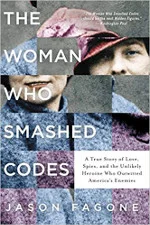
by Jason Fagone (recommendation written by Ben Cotton)
Stop me if you've heard this before: A woman does pioneering work in a field, only to have the men remembered by posterity. So it was for Elizebeth Smith Friedman. But she's starting to receive her due. Jason Fagone's The Woman Who Smashed Codes is not the first recognition of Friedman's work, but it's recent.
Friedman and her husband William rival the Curies as the most impressive scientific couple in history. Their careers would have been impressive on their own, but the combination made them incredible. Starting out working on a rich man's compound trying to prove that Francis Bacon wrote Shakespeare's plays, they went on to essentially invent the field of cryptanalysis.
Fagone's book is a biography, but with a narrow view. He spends little time on Elizebeth's life prior to joining George Fabyan's Riverbank Laboratories. Life after World War II is similarly viewed in fast-forward. But the three decades in between are covered in depth.
The outbreak of World War I saved the Friedmans from work they were rapidly coming to doubt. Their work decoding enemy messages—and inventing the processes for doing so—changed their personal and professional trajectories and brought them into prominence. Between wars, Elizebeth cracked the messages of Prohibition runners. When war came again, the Coast Guard cryptanalysis unit she created worked to crack three variations of the Enigma machine and was responsible for tracking the extensive Nazi spy ring in Argentina.
Despite her incredible work, Elizebeth often took a backseat to William. She seemed to prefer it that way. The Friedmans each felt the other was the smarter and more talented of the pair. Fagone devotes little of the book to Elizebeth's personal life, except for her relationship to William. Their mutual devotion and admiration are as inspiring as their work.
This is a thick book, but it reads much faster than you'd expect. I enjoyed reading it and came away with a deep admiration of Elizebeth Smith Friedman, a person I hadn't heard of before I read this book.
(Ben published a version of this review on Funnel Fiasco.)
Do you have a book suggestion you would like to share? Let us know your recommendations in the comments.

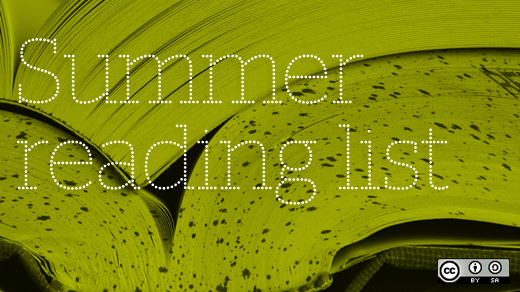

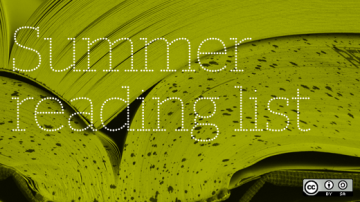





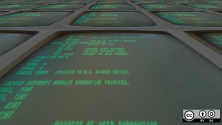
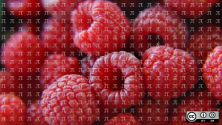
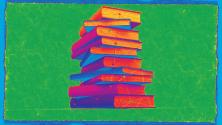

1 Comment